Days of Rage on the Arab street
Published on
“After the first successful thrust every revolution differentiates into political and class currents. This is the moment of greatest danger. The moment when the future of the revolution is decided.
” (John Rees)
 After
successful ousting in Tunisia and Egypt now on the rest of Arab streets
in every Arab capital the masses have the idea that change is possible.
Will the ouster of autocrats continue remains to seen. Along the Arab
street there is a long history of tensions and frozen conflicts and
events in Tunisia and Egypt may be a catalyst for rebellion. Still
existing regimes and dictators are using old strategies to stay in
power. These included promises of rulers to resign in future, using
pro-government thugs against demonstrators, wage increases and tax cuts
and other economic concessions to cut support from uprisings.
After
successful ousting in Tunisia and Egypt now on the rest of Arab streets
in every Arab capital the masses have the idea that change is possible.
Will the ouster of autocrats continue remains to seen. Along the Arab
street there is a long history of tensions and frozen conflicts and
events in Tunisia and Egypt may be a catalyst for rebellion. Still
existing regimes and dictators are using old strategies to stay in
power. These included promises of rulers to resign in future, using
pro-government thugs against demonstrators, wage increases and tax cuts
and other economic concessions to cut support from uprisings.
 Dictators
have been ousted so far in Tunisia and Egypt and today it seems that
Libya, Yemen and Bahrain will follow any day; 'Sturm und Drang' is
advancing extensively on the Arab streets. How deep the change will be
on scale reformation-revolution and wide the fire will spread on the
Arab street and outside of it remains to seen.
Dictators
have been ousted so far in Tunisia and Egypt and today it seems that
Libya, Yemen and Bahrain will follow any day; 'Sturm und Drang' is
advancing extensively on the Arab streets. How deep the change will be
on scale reformation-revolution and wide the fire will spread on the
Arab street and outside of it remains to seen.
Egypt starts post-Mubarak era
 In
Egypt it now appears that the coup was possible due the tensions
between Tantawi and the Mubarak family. Tantawi was frustrated with the
prospect that Mubarak's son Gamal. might ascend to the presidency. Gamal
Mubarak, in turn, was believed to be hostile to Tantawi and wanted him
to be removed. Huge crowds of Egyptians who demonstrated for 18 days
against Hosni Mubarak's rule saw Defense Minister Hussein Tantawi and
his troops as their saviour. They appealed to the military to intervene
in Egypt's crisis, and the generals did.
In
Egypt it now appears that the coup was possible due the tensions
between Tantawi and the Mubarak family. Tantawi was frustrated with the
prospect that Mubarak's son Gamal. might ascend to the presidency. Gamal
Mubarak, in turn, was believed to be hostile to Tantawi and wanted him
to be removed. Huge crowds of Egyptians who demonstrated for 18 days
against Hosni Mubarak's rule saw Defense Minister Hussein Tantawi and
his troops as their saviour. They appealed to the military to intervene
in Egypt's crisis, and the generals did.
Party is over? Over the weekend, Egyptians and others globally celebrated. Today they awakened to the cold reality of a new dawn. Mubarak has gone, but his state apparatus remains intact. In my opinion the outcome in Egypt will be a reform not revolution, that is, changes in personnel and policies, protection of human rights, but no challenge to the structure or the constitution. Egypt’s society is diverse enough to withstand a despotic theocracy and if in doubt so the army is the final guarantor. If the military regime retains power the geopolitical arrangements would remain in place.
According social media April 6 Youth movement continues demonstration to implement following demands:
Acquitting the current government.
![]() To
make a complete break with the bourgeois regime and that means
expropriating the wealth of the big capitalists - the Mubarak family,
the some 1.000 family clique around them including leading army brass.
Egypt’s senior generals are part of the ruling establishment and army is
up to its helmets in big business: shopping centers, tourism, property,
hotels, steel, telecom. A real revolution would require a Marxist
revolutionary leadership by Egyptian workers and youth and there is no
signs that such a party is possible to build in near future. There
is a deep divide in the opposition and thus far do not appear to have
been able to generate the type of mass movement that toppled the Shah of
Iran’s regime in 1979.
To
make a complete break with the bourgeois regime and that means
expropriating the wealth of the big capitalists - the Mubarak family,
the some 1.000 family clique around them including leading army brass.
Egypt’s senior generals are part of the ruling establishment and army is
up to its helmets in big business: shopping centers, tourism, property,
hotels, steel, telecom. A real revolution would require a Marxist
revolutionary leadership by Egyptian workers and youth and there is no
signs that such a party is possible to build in near future. There
is a deep divide in the opposition and thus far do not appear to have
been able to generate the type of mass movement that toppled the Shah of
Iran’s regime in 1979.
Libya moving to civil war
The protests in Libya are the latest in a wave of dissent sweeping the Arab world in the wake of the revolutions in Tunisia and Egypt. After the worst unrest in Gaddafi's four decades in power hundreds of people have been killed over the past three days in a fierce security crackdown mounted in response to anti-government protests that sought to emulate uprisings in neighbouring Egypt and Tunisia. ABC News reports that the protests were originally not organised but were sparked by youths turning out for Thursday's "Day of Rage" against the Gaddafi regime. "We don't have here unions and syndicates or political parties, just youth going out on the "Day of Rage" (February 17).
Gaddafi's government has moved quickly to try to stop Libyans from joining the wave of uprisings in the Middle East. In an attempt to stave off protests the Libyan government had announced it would double the salaries of government workers. It also released a sizeable number of Islamic militants from prison. As soft power was not enough the regime used hard its security troops and also "thugs" were being given cash and new cars to take to the streets and attack anti-government protesters. Government used e.g. snipers from the Internal Security Forces in the eastern city of Beyida against unarmed demonstrators. In Benghazi police initially followed orders Saturday to act against the protesters, but later joined with them because they belong to the same tribe and saw foreign mercenaries taking part in the killings.
Libyan leader Moammar Gaddafi’s son Seif al-Islam delivered a speech on national television. The content of the speech indicates the state believes it is facing a serious uprising and a potential civil war. He also has orchestrated the release of members of the Libyan Islamic Fighting Group, which is suspected of having links to al-Qaida, in the past as part of a reconciliation plan. Another of Gaddafi’s sons, Libyan National Security Adviser Motasem Gadhafi, is Seif al-Islam’s potential rival.
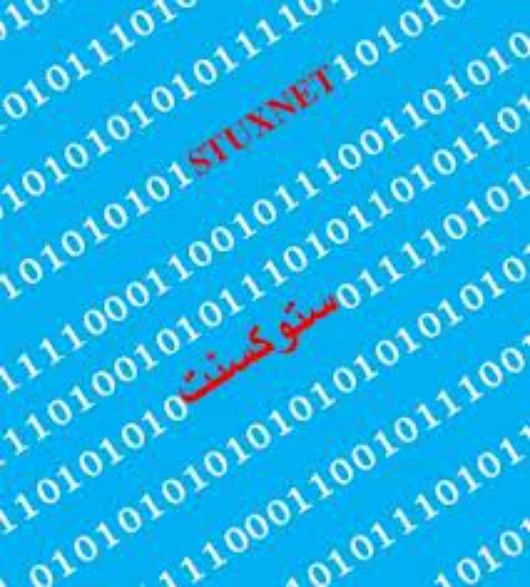 In
some areas it also seems that the police and security forces are
showing sympathy for the protesters and even army units have changed
side. In Ajdabia the police seem to have sided with the protesters to
fight government mercenaries and the government has reacted by shutting
down electricity supplies and access to the internet has been blocked.
Some towns were surrounded by the military but latest reports are
claiming that many regions are already occupied by opposition. Some
tribe leaders are taking side with opposition, the government has
started to collapse and Gaddafi has probably escaped from Tripoli to his
desert base.
In
some areas it also seems that the police and security forces are
showing sympathy for the protesters and even army units have changed
side. In Ajdabia the police seem to have sided with the protesters to
fight government mercenaries and the government has reacted by shutting
down electricity supplies and access to the internet has been blocked.
Some towns were surrounded by the military but latest reports are
claiming that many regions are already occupied by opposition. Some
tribe leaders are taking side with opposition, the government has
started to collapse and Gaddafi has probably escaped from Tripoli to his
desert base.
Gaddafi has ordered the Libyan air force to fire on military installations in Libya, which reflects a split within the regime source, earlier air force fighters have opened fire on crowds of protesters and the navy has participated too operations against demonstrators.
Earlier possibility for an Egypt-style revolt was seen unlikely in Libya because the government could use oil revenues to smooth over most social problems. Probably the events escalated so fast that there was not enough time to use this mean.
The Middle East on the edge
Thousands of people are protesting in Yemen for a fifth consecutive day to demand political reforms and the ouster of the country's US-allied president - Saleh - who has ruled the Arab world's poorest country since 1978. Military ties between the US and Saleh's administration have grown stronger in recent months, as the country struggles with the increasing militancy of a secessionist movement in the south, as well as unrest provoked by rising food prices, unemployment reaching 40 per cent - and demands for human rights to be recognized.The US is shortly to embark on a $75m project to train Yemen's counterterrorism unit, US officials say. (Source: Uruknet)
"Down with the president's thugs" (sign in demonstration)
Yemen used to be two separate countries: The southern half was the only Arab communist country - PDRY(People's Democratic Republic of Yemen). There is unrest in the south because they haven't fully integrated the two parts of the country. Government has still not resolved the issues of the rebellious so-called Houthi people on the Saudi border, where the Saudis have intervened militarily. Economically Yemen has no water, and the country faces an agricultural crisis for which there is no visible solution. A hugely disproportional amount of water that they do have is used for the cultivation of qat, a mild narcotic leaf. Yemen has no oil. It is now the place where al-Qaeda in the Arabian Peninsula has established itself, and it poses a serious terrorism issue. And similarly to other Arab despots who face overthrow, President Saleh had announced wage increases and tax cuts and other economic concessions. Like in Egypt pro-government thugs armed with daggers and batons fought anti-government protesters. The police fired warning shots into the air, but then withdrew from the streets allowing the thugs to attack the anti-government protesters.
 In Bahrain,
the problem is between the majority of people, who are Shiite, and the
ruling government, who are Sunnis. The latest death raises the
possibility of more rallies and challenges to the ruling Sunni monarchy
in Bahrain. In the past week, Bahrain's rulers have attempted to
undermine calls for reform by promising nearly $2,700 for each family
and pledging to loosen state controls on the media. A main Shiite
opposition group, Al Wefaq, denounced the "bullying tactics and barbaric
policies pursued by the security forces" against peaceful marchers
staging the first major rallies in the Gulf since uprisings toppled
long-ruling regimes in Tunisia and Egypt. Bahrain's protesters,
however, claim they do not seek to overthrow the ruling monarchy but
want greater political freedoms and sweeping changes in how the country
is run. The demands include transferring more decision-making powers to
the parliament and breaking the monarchy's grip on senior government
posts. Bahrain's majority Shiites — about 70% of the population — have
long complained of systemic discrimination by the Sunni rulers.
In Bahrain,
the problem is between the majority of people, who are Shiite, and the
ruling government, who are Sunnis. The latest death raises the
possibility of more rallies and challenges to the ruling Sunni monarchy
in Bahrain. In the past week, Bahrain's rulers have attempted to
undermine calls for reform by promising nearly $2,700 for each family
and pledging to loosen state controls on the media. A main Shiite
opposition group, Al Wefaq, denounced the "bullying tactics and barbaric
policies pursued by the security forces" against peaceful marchers
staging the first major rallies in the Gulf since uprisings toppled
long-ruling regimes in Tunisia and Egypt. Bahrain's protesters,
however, claim they do not seek to overthrow the ruling monarchy but
want greater political freedoms and sweeping changes in how the country
is run. The demands include transferring more decision-making powers to
the parliament and breaking the monarchy's grip on senior government
posts. Bahrain's majority Shiites — about 70% of the population — have
long complained of systemic discrimination by the Sunni rulers.
Initially the protesters were calling on the Sunni monarchy to adopt more liberal policies and also grant more rights for the country's majority Shiite population. But as the movement grew in strength after it started on Monday of last week the demands of the protesters have become bolder, calling for jobs, better housing conditions and freedom for all political prisoners. Source: Ynetnews )
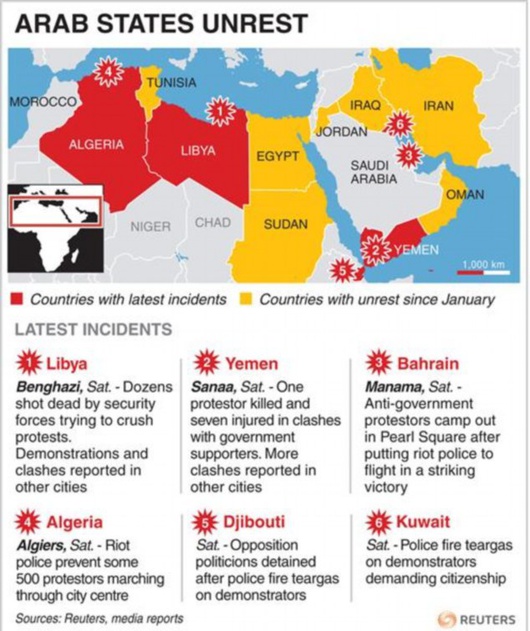 Bahrain
is of particular importance to the United States because it is the
headquarters of the U.S. Navy's Fifth Fleet. If King Khalifa falls so
U.S. outpost for Iran and strategic Hormuz channel will be in danger.
Also other side of the border are Saudi Arabia's oilfields on Persian
Gulf – populated mostly with Shiites.
Bahrain
is of particular importance to the United States because it is the
headquarters of the U.S. Navy's Fifth Fleet. If King Khalifa falls so
U.S. outpost for Iran and strategic Hormuz channel will be in danger.
Also other side of the border are Saudi Arabia's oilfields on Persian
Gulf – populated mostly with Shiites.
Bahrain was the first sign of post-Egypt unrest anywhere in the wealthy Gulf states, but also in Kuwait, opposition groups had called for an anti-government protest last week, but shifted the date to March 8 after the resignation of the country's scandal-tainted interior minister.
The Islamic Action Front is the political wing of the Muslim Brotherhood in Jordan and it seems that it has now transformed political disillusionment into political capital. The Islamic Action Front is more liberal than Islamist parties in some other countries and so far it has backed the royal family. However supporters of this country's largest opposition party held a rally to celebrate the new Egypt and the people power that swept away Mubarak. Jordanians took to the streets demanding constitutional reform and more say in decision-making. About 2,000 pro-democracy protesters under attack from pro-government activists armed with batons, pipes and stones. King Abdullah II dismissed his cabinet earlier this month after massive street protests against the government’s economic and political policies.
In Jordan dissatisfaction with regime was shown also indirectly. In a letter published this week by 36 Jordanian tribal leaders, who represent nearly 40% of the population and play an important role in the kingdom's politics, the Queen Rania Al-Abdullah was criticized relentlessly. In the letter, Rania was accused of "corruption, stealing money from the Treasury and manipulating in order to promote her public image – against the Jordanian people's will."It was also mentioned that Jordan is suffering from "an authority crisis" and from a growing influence of "corrupt businessmen who surround the decision makers, affect political decisions and ignore national interests." The tribal leaders called to "put these corrupt people who stole from the country on trial, regardless of their status.""Sooner or later Jordan will be a destination for a similar uprising like the ones in Tunisia and Egypt because of oppression of freedom and robbing from public funds," said the letter. (Source: Ynetnews)
In Saudi Arabia spread over week ago a wild rumor that king, Abdullah bin Abdul-Aziz, is dead, which triggered a spike in the price of oil; the government assured that he is alive and in "excellent shape". A Saudi Arabian prince on Thursday said said that the protests and unrest in Arab countries may be dangerous for his country if King Abdullah does not step up the pace of reform. Prince Talal bin Abdul-Aziz, a half brother of the king, said it was not too late for the Saudi government to take steps to avoid protests. He also said the king is the only person who can bring about major changes. Talal has called for reform before, he holds no government posts and is considered something of an outsider within the royal family.
Perhaps fearing its own uprising, the Saudi Arabia's government (unchanged since its 1932 founding) "react(ed) to the winds of change blowing throughout the Arab Middle East. For the first time, a political party has been established - and though it has not yet received official government approval," it asked King Abdullah to allow it. Supported by lawyers, businessmen, and others, Saudi's new Islamic Nation Party is a first. Saying it will work for political reform and human rights, it stressed that the "regime need not fear the democratic spirit overtaking the Arab world."Saudis domestic intelligence service, the General Directorate for Investigations, arrested five party's founders on the night of February 16, 2011, one week after they submitted their request for recognition of the Islamic Nation Party as a political party to the Royal Court and the Shura Council, an unelected council with some parliamentary functions.
Saudi
Arabia does not allow political parties. Up to now and unless changed,
King Abdullah appoints a Cabinet of Ministers every four years,
including many royal family members. No elections are held. In 2006, a
committee of Saudi princes was established to serve unspecified future 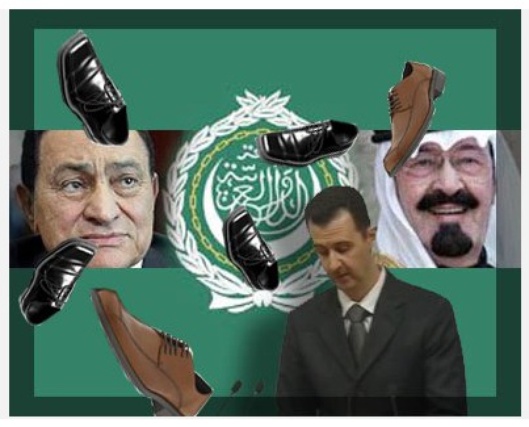 selection
functions after Crown Prince Sultan becomes king. A 150-member
Consultative Council also exists, headed by a royal appointed chairman
to serve four years. Demonstration along the Arab streets have alarmed
the Saudis and the regime is investing huge amounts of money securing
their southern border for that reason.
selection
functions after Crown Prince Sultan becomes king. A 150-member
Consultative Council also exists, headed by a royal appointed chairman
to serve four years. Demonstration along the Arab streets have alarmed
the Saudis and the regime is investing huge amounts of money securing
their southern border for that reason.
In Syria, too, although President Bashar Assad Tuesday put on a big show of unconcern by mingling unescorted among a crowd of affectionate admirers in Damascus, the situation is very tense. Early Wednesday, he placed Syrian security forces and the army on high alert in readiness for the Day of Anger called for Friday, Feb. 18, by opposition organizations, including the Muslim Brotherhood. After Syrian intelligence received word that it was planned to be the most serious attempt to date to shake the dynastic Assad regime, police and security strength in Syrian cities were beefed up. Heavy reinforcements were moved into the Kurdish areas of the north, where the most violent protests are anticipated. Assad has adopted the Iranian tactic of exerting maximum force to break up crowds as they form and giving security forces a free hand to open fire with live ammunition without having to ask for permission. (Source: Debkafile)
According the International Marxist Tendency even Iraq is now being affected as mass protest have erupted across the country, particularly in the Kurdish areas of the country where violent protests have broken out as the anger of the youth has reached boiling point. Ten people are reported to have been killed by police forces during protests in Sulaymaniya. Violent protests have taken place at various locations in Iraq, with anti-government protesters taking out rallies against corruption, poor basic services and high unemployment. In Basra, the country's second largest city in the south, around a thousand people rallied today, demanding jobs and improved pensions.
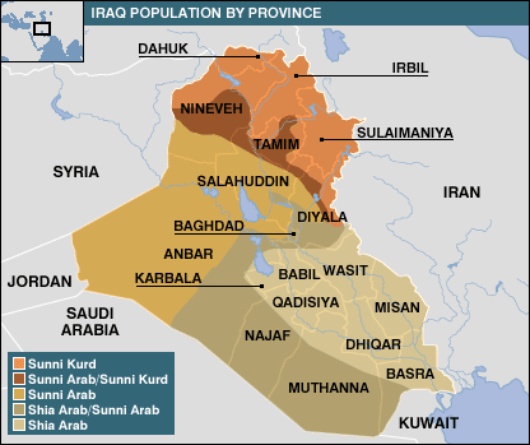 Iraqi
and Kurdish leaders have also attempted to head off the protests by
slashing the salaries of ministers and MPs and diverting cash earmarked
for the purchase of fighter jets to buy food for the needy. This
highlights growing mass opposition to the atrocious social conditions
created by the occupation regime set up by Washington after the US
invasion in 2003. These include lack of electricity and clean water,
mass joblessness, and surging increases in the price of food—as well as
the dictatorial conduct of the new rulers placed in power by Washington.
Iraqi
and Kurdish leaders have also attempted to head off the protests by
slashing the salaries of ministers and MPs and diverting cash earmarked
for the purchase of fighter jets to buy food for the needy. This
highlights growing mass opposition to the atrocious social conditions
created by the occupation regime set up by Washington after the US
invasion in 2003. These include lack of electricity and clean water,
mass joblessness, and surging increases in the price of food—as well as
the dictatorial conduct of the new rulers placed in power by Washington.
In Palestine the turmoil started already earlier due the the Al Jazeera-Guardian Palestine Papers leak, the Palestinian Authority also made early mistake bywrongly siding with Egypt’s ousted dictator Hosni Mubarak, now the PA is employing desperate political maneuvers. According analyst Fadi Elsalameen nothing short of Abbas and Fayyad handing in their own resignations and accepting responsibility for their failures will satisfy the Palestinian streets. Abbas and Fayyad are of a past era. They are no longer representative of the future we young Palestinians seek for ourselves. Rather, we see them through the lens of withering and illegitimate Arab regimes that if not replaced democratically will be toppled through a popular revolution that I can assure them has already begun. (Source: Al Jazeera )
So far the military coup has stabilized or even improved Egypt's relationship with Israel. Last week on 18th Prime Minister Binyamin Netanyahu and Defense Minister Ehud Barak have waved through another 3,000 Egyptian troops into North Sinai, topping their number up to 4,000 and virtually scrapping the key demilitarization clause of the 1979 peace treaty. Senior Israeli military officers report that Israel posed no conditions for its permission then or now – not even demanding a timeline for their withdrawal so that Sinai might revert to the military-free buffer status which buttressed the peace for 32 years. Neither were limits placed on the Egyptian troops' operations and movements. (Source: Debkafile)
Maghreb on the waitlist
 In Morocco
the government appears to be trying to calm fears over price hikes on
basic goods ahead of a Facebook-arranged protests planned for next
Sunday. It has doubled the money it sets aside for state subsidies to
counter rising global commodity prices.The
Moroccan monarchy is largely popular and entrenched in the
socio-cultural foundations of the country., so much so that in Morocco
we can actually talk about two layers of political authority that help
set the monarchy as regime and political order above the political fray,
and one that is capable of deflecting all criticism towards the state
government led by the prime minister.
In Morocco
the government appears to be trying to calm fears over price hikes on
basic goods ahead of a Facebook-arranged protests planned for next
Sunday. It has doubled the money it sets aside for state subsidies to
counter rising global commodity prices.The
Moroccan monarchy is largely popular and entrenched in the
socio-cultural foundations of the country., so much so that in Morocco
we can actually talk about two layers of political authority that help
set the monarchy as regime and political order above the political fray,
and one that is capable of deflecting all criticism towards the state
government led by the prime minister.
Communist League of Action as a Marxist revolutionary group in Morocco declared its position as follows:
active participation in the mobilization of the masses its appreciation of the Democratic Confederation of Labour and other leftist organizations and parties (the Democratic Way, the United Socialist Party, the Moroccan Association of Human Rights, etc) who are participating to assure the success of this action the objective conditions for revolutionary change are ripe, posing for the revolutionary left the responsibility to prepare for the leadership of these and other actions towards the completion of the historical tasks their opposition to all forms of class cooperation with the capitalists and their dependent capitalistic stat“One, two, three, viva L'Algerie”
Algeria - a regional power, U.S. ally, and major energy producer -- is vulnerable to revolution; however the number of protesters there, who went to the streets on February 12th was much smaller than in Tunisia and Egypt. In my opinion Algeria is surprisingly quiet reflected to its violent past. After massive riots caused the one-party state to collapse in 1988, Algeria failed to become a democracy, and the military took power in 1992. What followed was the decade-long Algerian civil war. Algerian civil society has only just begun to emerge from the trauma of that war, which left 200,000 people dead. To date, it remains the region's most violent conflict between militants and the state.
In Tunisia, the revolution of the young urban elite has for the time being concealed the fact that the Islamists Renaissance party is likely to emerge from the fringes of illegal sub-activity to that of a leading political force. While this is unlikely to transform Tunisia into a stronghold of radical fundamentalism, the Islamic movement under the leadership of Rachid Ghannouchi is expected to fare well in democratic elections scheduled for this summer.
Radical Islamists gathered outside a synagogue in Tunis and chanted anti-Semitic slogans. Footage taken from the scene shows them chanting "Allahu Akbar" and "Khaybar, Khaybar. Oh Jews, Muhammad's army will return". They were referring to the Battle of Khaybar, which was fought in the year 629 between Muhammad and his followers against the Jews living in the oasis of Khaybar, located 150 kilometers (95 miles) from Medina in the modern-day Saudi Arabia (song came recently famous as it was popular song also in Gaza flotilla).
John Rees writes in his analysis The Tunisian Revolution in historical contextas follows:
It is still possible in Tunisia that the ruling elite, having jettisoned only their hated figurehead, will attempt to crush the movement by force and restore the old regime virtually unmodified. It is also possible that there will be some transition to a weak form of bourgeois democracy where there is a change in the political structure of the country but no change to the underlying property relations. The fate of the Tunisian revolution is, so far, still hanging in the balance. Will it result in more far reaching political change? Will the momentum of the considerable working class opposition to the old dictator, including the General Strike, which was crucial in breaking his Presidency, carry the revolution forward to confront capitalist property revolutions? Will political currents emerge that represent this perspective? These questions are still to be answered.
Demography factor
One major cause behind the unrest on Arab streets is demographic expansion in all these countries. Although birth rates are falling, a third of the overall population is below 15 years old, and large numbers of young women either are or soon will be reaching reproductive age. The Ministry of Defense in the UK has projected that by 2030 the population of the Middle East will have increased by 132%, and that of sub-Saharan Africa by 81%, generating an unprecedented “youth bulge.” As unemployment among youth is high and there is no sign for improvement, the perspective for better future is rather dim.
Below I have collected some statistics reflecting demographic challenge:
CountryPopulation% < 30
Jobless
youth
RulerAlgeria34,6
57
45,6
A. Boutflika, 11 yearsBahrain1,2
+56
54.1
King Ali KhalifaJordania6,4
64
27
King HusseinEgypt80,5
61
21,7
Military council 0 yearsLibya6,5
60
27,5
M. Gaddafi, 42 yearsMorocco31,6
56
21,9
King Muhammed VI, 11 y.Saudi Arabia25,7
61
16,3
King Abdullah, 6 yearsSudan43,9
69
na
O. al-Bashir, 18 yearsSyria22,2
66
16,5
B. al-Assad, 11 yearsTunisia10,6
50
27,3
Interim 1 monthYemen23,5
72
18,7
Ali Saleh, 32 yearsDemography is creating other problems – than radicalism and unrest – which are limiting socio-economic solutions. The Water Sector Assessment Report on the Gulf countries expects that the availability of fresh water is likely to halve because of demographic pressures. A halving of available water supplies due to population growth over the next 20 years could all too easily intensify tensions and turn them into civil wars and international military hostilities.
Democracy now
According
The Economist report the Middle East and North Africa (MENA) remains
the most repressive region in the world—16 out of 20 countries in the
region are categorized as authoritarian. There are only four exceptions:
Israel is the only democracy in the region, albeit a flawed democracy;
and there are three hybrid regimes (Iraq, Lebanon and the Palestinian
Territories). The average score of countries in the region declined from
an already very low 3.54 in 2008 to 3.43 in 2010, almost a point below
the next lowest-scoring region, Sub-Saharan Africa.
The Economist Intelligence Unit’s index of democracy, on a 0 to 10 scale, is based on the ratings for 60 indicators grouped in five categories: electoral process and pluralism; civil liberties; the functioning of government; political participation; and political culture.
Meanwhile in Iran
In Iran demonstrations were initiated by Iranian opposition figures in ostensible solidarity with the popular protests in Egypt and elsewhere, but were plainly intended to revive the post-election protests of 2009. “How, after all, it will be wondered, can Ahmadinejad say ‘yes’ to the rights of the Arab peoples, but deny those same rights to his own people?”
 Iran’s
protests have sparked hope among observers of the region that the
country might see a grassroots, Egypt-style uprising that would unseat
the ruling theocracy. However the circumstances between Egypt and Iran
differ. In the Islamic Republic there are security forces eager to do
exactly what the Egyptian military were not willing to do – beat, and
even shoot and kill citizens protesting on the streets. Iran’s
Revolutionary Guards and fiercely loyalist Basij militia consider it a
“sacred duty” to quell anti-government dissent. According Hagai M.
Segal, a lecturer on Middle Eastern Affairs at New York University in
London “Iran has welcomed events in Egypt, yet has suppressed its own
democracy movement, and even while celebrating events in Egypt they have
banned public demonstrations in its favor because it fears Iranian
protesters back on the streets,” he said. “Mousavi, Karroubi and others
wish to remind Iranians and the West of this double standard, and if
possible, reignite their own ‘revolution’ in the process.” (Source: Jerusalem Post)
Iran’s
protests have sparked hope among observers of the region that the
country might see a grassroots, Egypt-style uprising that would unseat
the ruling theocracy. However the circumstances between Egypt and Iran
differ. In the Islamic Republic there are security forces eager to do
exactly what the Egyptian military were not willing to do – beat, and
even shoot and kill citizens protesting on the streets. Iran’s
Revolutionary Guards and fiercely loyalist Basij militia consider it a
“sacred duty” to quell anti-government dissent. According Hagai M.
Segal, a lecturer on Middle Eastern Affairs at New York University in
London “Iran has welcomed events in Egypt, yet has suppressed its own
democracy movement, and even while celebrating events in Egypt they have
banned public demonstrations in its favor because it fears Iranian
protesters back on the streets,” he said. “Mousavi, Karroubi and others
wish to remind Iranians and the West of this double standard, and if
possible, reignite their own ‘revolution’ in the process.” (Source: Jerusalem Post)
My conclusions
“If the people don’t go home, the regime will have a problem”(Menashe Amir)
Nelson Mandela said many times that while in prison he saw too many postcolonial leaders come to power only to abuse their people and rob them of the promises of liberation. Revolutionary movements invariably split into factions. Their sole common objective is the ouster of the existing regime. As soon as this goal comes close to being achieved, elements of the opposition begin to position themselves for the second phase of the struggle and the coming competition for power.
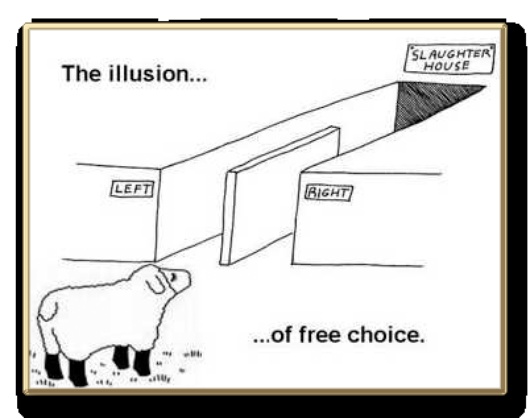 I
am afraid (but hopefully wrong) that it is unlikely demonstrations to
result in a widespread fall of regimes in near future. There may be
more change among dictators, some military coups and modest reforms.
However the regimes and economical interest groups behind them may stay
almost untouched and the outcome at best is only an updated illusion of
democracy.
I
am afraid (but hopefully wrong) that it is unlikely demonstrations to
result in a widespread fall of regimes in near future. There may be
more change among dictators, some military coups and modest reforms.
However the regimes and economical interest groups behind them may stay
almost untouched and the outcome at best is only an updated illusion of
democracy.
Epilogue
A fresh documentary film “People & Power- Egypt: Seeds of change” by Al-Jazeera reveals the story behind the unprecedented political protests in Egypt. Over the course of a remarkable fortnight, People&Power has been filming exclusively behind the scenes with a core group of young activists. It also shows how they studied “lessons learned” from Otpor – a student movement in Serbia, which helped to oust Milosevic some ten years ago.
 Watch film Here!
Watch film Here!
Some of my other Middle East articles:
Egypt at crossroads – theocrazy, democracy or something betweenPaliLeaks, land swaps and desperate search of peaceCyber war has became a tool between political and military optionsIs Yemen the next target for the War on Terror?Saudi-Israeli cooperation for attacking IranFragments of the Middle East peace efforts



